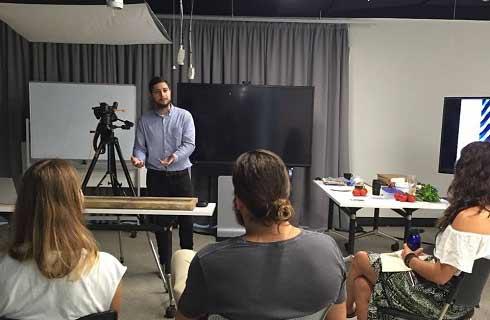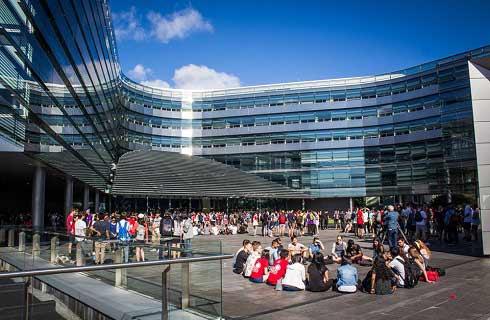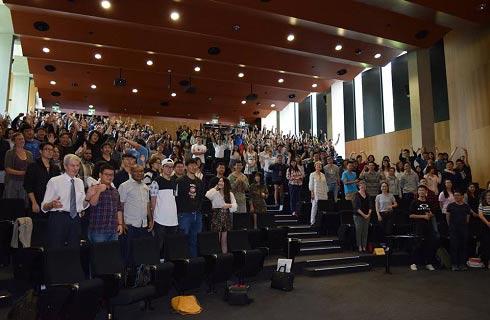应用人类学文学硕士
Master of Arts in Applied Anthropology

学历文凭
Masters Degree

专业院系
Anthropology

开学时间

课程时长

课程学费

国际学生入学条件
IDP—雅思考试联合主办方

雅思考试总分
6.5
了解更多
雅思考试指南
- 雅思总分:6.5
- 托福网考总分:79
- 托福笔试总分:550
- 其他语言考试:PTE-A - 53.
CRICOS代码:
申请截止日期: 请与IDP顾问联系以获取详细信息。
课程简介
The Applied Anthropology major, initiated in 1974, was the first in the country to focus on career training for the practice of Applied Anthropology. Faculty at USF specialize in various areas including medical anthropology, biological anthropology, urban policy and community development, education, archaeology, cultural resource management (CRM), economic development, immigration, media, and issues pertaining to race, gender, and ethnicity. Geographic specializations emphasize the Caribbean, Latin America, Sub-Saharan Africa, Europe, and the United States. More than 240 graduates have received an education in anthropology and its practical uses, leading to employment in government and private sector agencies and organizations. For many, the M.A. is a terminal degree that qualifies them for professional careers in administration, program evaluation, planning, research, and cultural resource management. Others have gone on to earn doctoral degrees and have gained employment in academic or higher level nonacademic positions. Students entering the Applied Anthropology major at USF choose from one of four tracks: Archaeology, Biological Anthropology, Cultural Anthropology, or Medical Anthropology. Although these four tracks share some common requirements, and are bound by general rules of the USF Graduate School, they have different curricula and employment trajectories. Archaeology Track graduates typically enter careers in contract archaeology, or public and private agencies and museums responsible for managing archaeological resources. The Cultural Anthropology Track is designed to lead to employment in diverse areas that include education, urban planning, human services, private sector consulting and research, and non-governmental community organizations. Museum and heritage programming represent an area of overlap between the two emphases. Students who wish to pursue these kinds of specialties will develop curricula that draw from both applied and public archaeology requirements in consultation with their advisors. Biological Anthropology students are trained to work in law enforcement, private sector consulting and research, and non-governmental organizations. The Medical Anthropology track prepares students to conduct research, evaluation, and consulting in a variety of settings, including community-based organizations, county and state health departments, and non-governmental organizations. In addition to following the curriculum of a track, M.A. students can select elective courses to fulfill one of four concentrations in Archaeological and Forensic Sciences, Biocultural Medical Anthropology, Cultural Resource Management, or Heritage Studies.
相关申请
 预科
预科 奖学金
奖学金 实习机会
实习机会 在校学习
在校学习 跨境学习
跨境学习 校园授课-线上开始
校园授课-线上开始 在线/远程学习
在线/远程学习
学校排名

世界排名251
数据源:泰晤士高等教育世界大学排名
关于南佛罗里达大学

南佛罗里达大学University of South Florida建于1956年,是于20世纪创建的新型大学。南佛罗里达大学仅用40多年的时间便从开始的2000名学生发展到拥有3.5万名学生的大学,成为全美20所最大的大学之一,而且仍在不断的发展。南佛罗里达大学坐落在佛罗里达州的Tampa Bay。Tampa的主校园占地1700英亩,另外2个校园为St. Perterburg和Lakeland校园。 南佛罗里达大学是一所公立综合大学。 学校下设文理学院、商业管理学院、教育学院、工程学院、美术学院、医学护理与公共健康学院及建筑系。 学校占地 1,931 英亩,距离坦帕市中心 10 英里。南佛罗里达大学由10个学院组成,其中文理学院为最大,相当于一般的综合性大学的规模。 南佛罗里达大学是63所美国国家一流的公立研究大学中的一所,在2011年被评为全美一级大学。全美一级大学是指在各个学科领域内拥有领导者地位和影响力的大学,这其中包括哈佛大学,斯坦福大学,耶鲁大学等大学。 普林斯顿评论认为南佛罗里达大学是其中一所东南部最好最有价值的大学。 美国新闻与世界报道中评论2009美国最好的研究生院,南佛罗里达大学榜上有名的研究生专业有:教育、护士、工业组织心理。教育排名45,工业组织心理排名10。 大学中心的企业项目在普林斯顿评论上名列国家第五名。 63所美国国家一流的公立研究大学中的一所,在2011年被评为全美一级大学。
本校相关课程

Bachelor of Arts in Theatre - Design
学历文凭
Bachelor Degree
开学日期
课程费用总额


Bachelor of Arts in Music Studies
学历文凭
Bachelor Degree
开学日期
课程费用总额


Bachelor of Science in Music Education
学历文凭
Bachelor Degree
开学日期
课程费用总额


Bachelor of Music in Music Performance - Acoustic and Electronic Composition
学历文凭
Bachelor Degree
开学日期
课程费用总额


Bachelor of Arts in Dance - Dance Studies
学历文凭
Bachelor Degree
开学日期
课程费用总额


Bachelor of Fine Arts in Dance - Ballet
学历文凭
Bachelor Degree
开学日期
课程费用总额




















 美国
美国




